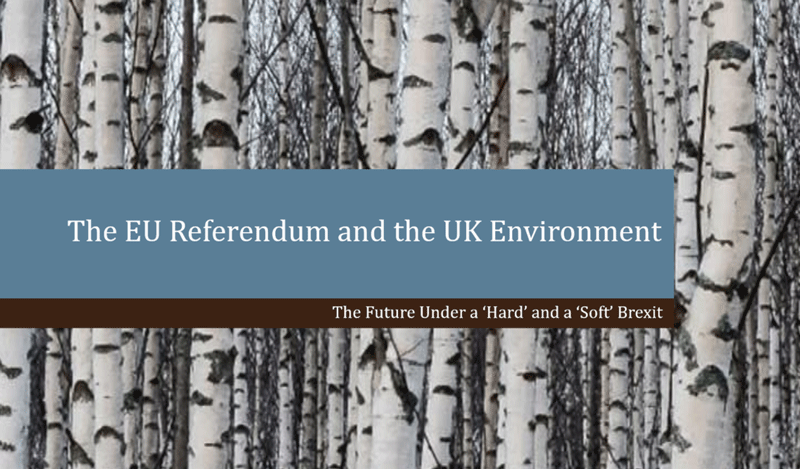“Brexit means Brexit,” said Theresa May in one of her first public statements as Prime Minister. But what does that mean – for agriculture, fisheries, the environment and climate change in the UK?
These were the leading questions in a recent study by Dr Charlotte Burns (University of York), Prof Andrew Jordan and Dr Viviane Gravey (University of East Anglia), whose Expert Review compares two main scenarios. A ‘soft’ detachment from the European Union, they assume, will see the UK remain as close as possible, establishing a new relationship with the EU akin to Norway’s. Conversely, a ‘hard’ Brexit would see the UK trade with the EU under World Trade Organisation rules.
The report concludes that the options will result in radically different impacts on policies, systems of governance and levels of environmental quality in the UK – “key issues that should inform forthcoming negotiations to affect Brexit.” More work is needed to sort through the detail of both scenarios, say the authors, arguing that the policy landscape must be mapped in order to determine which EU policies are covered by domestic legal equivalents, as well as to detect policy gaps and reflect on potential responses.
Furthermore, while a ‘soft Brexit’ comes with the benefit of maintaining a degree of policy stability, warn the authors, the risk is that policymaking actually becomes less – not more – democratic, with the UK becoming a policy-taker rather than a policymaker.
Related links
For further analysis on Brexit, please see our Essay collection on Democracy, sustainable development and Brexit.




